4 min read
How to Select The Best Air Dryer for CNC Machine Shops
Tsunami Team
:
Apr 4, 2023 2:20:26 PM
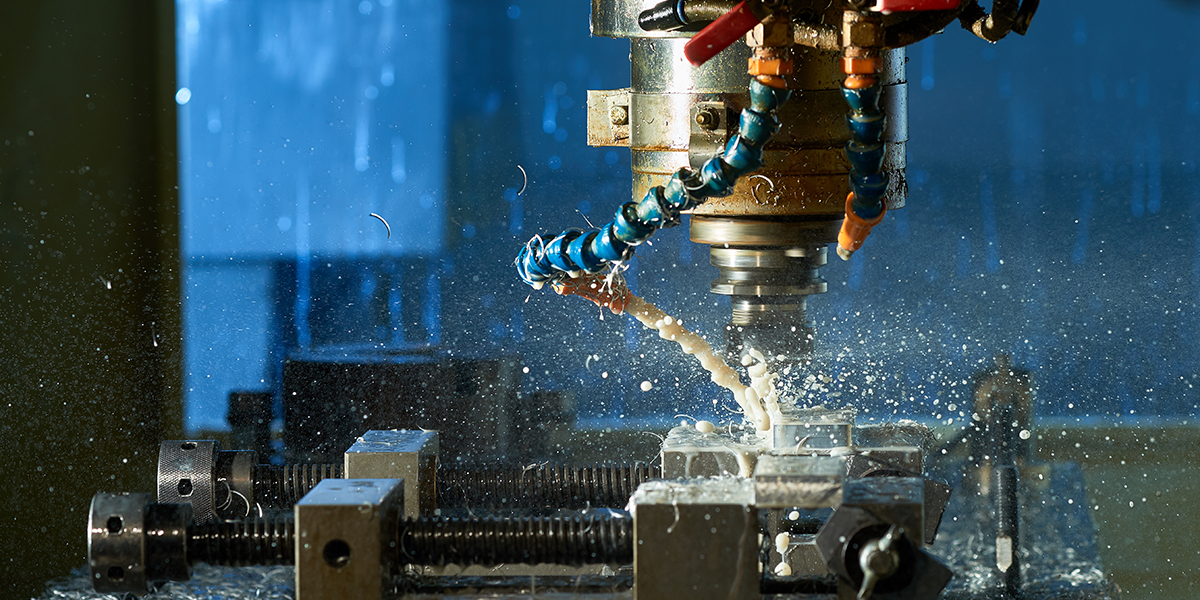
Strategic planning, implementing efficient processes, and installing efficient equipment produces quality products.
Air drying technology in CNC machine shops is an important tool; cleaner, drier air helps your equipment perform with greater precision and accuracy. Controlling corrosion, eliminating contamination, and even avoiding oxidation build up not only help the equipment, it can also improve productivity outside of the machines when the air is used for part blow off or secondary equipment use.
Key questions to ask:
- What type of drying technology should I use?
- How many dryers should I install?
- Do I need to go with a full system dryer, point-of-use dryer, or a combination?
These need to be answered in order to provide peak system and facility performance.
Discussed in this article:
- Four Types of Dryers and What They Do
- Which Dryer is Best for Your CNC Shop
- Why an Air Dryer is Your CNC Lifline
- How to Choose the Right Solution
Dryers: 4 Types to Consider
CNC machine shops require clean, dry air for a variety processes and equipment; CNC mills and lathes, clamping technology, rotary chucks, robotic technology, etc. Each of these applications may require different dryer technology to meet the equipment manufacturer’s specifications. There are four types of drying technology available:
- Refrigerated air dryers
- Regenerative desiccant dryers
- Single tower desiccant dryer
- Membrane dryers
Which technology to use and where - that is the question. Sometimes you need to look at integrating multiple dryer technologies to solve specific equipment and application needs.
Refrigerated Dryers
Refrigerated air dryers are the most common technology used in manufacturing and machining plants to dry the compressed air system.
How it works: The hot compressed air passes through a heat exchange where compressed air and refrigerant lines run side by side. This process allows the cool refrigerant to physically condense the water vapor into liquid water. Commonly, they will have a bulk water filter integrated in the unit to disperse the condensed liquid.

There is constant maintenance on keeping the heat exchange and surrounding areas free and clear of dust and dirt. In addition, servicing the refrigerant can be a nightmare with all the regulations surrounding refrigerants and the high cost.
Regenerative Desiccant Dryers
Due to their efficiency and cost-effectiveness, regenerative dryers are also gaining in popularity for CNC machine shops.
How it works: air dryers use multiple canisters of desiccant to remove water vapor from the compressed air. Then some of the dry air goes through the media a second time to dry the media. This allows it to be ready for the next use.
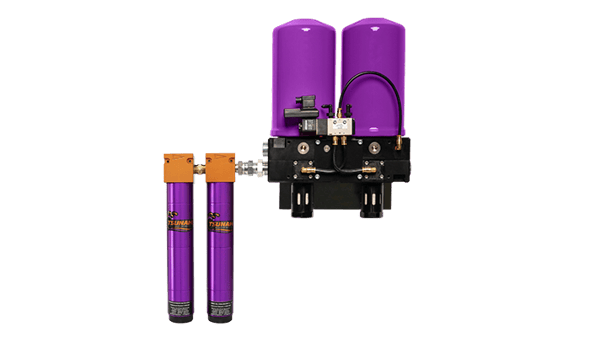
Regenerative dryers are best suited for CNC machining applications where there is high demand for air that is extremely clean and dry. Shops located in high-humidity areas may consider this dryer the best investment.
Single Tower Desiccant Dryer
This technology uses the same core material as is used in regenerative dryers - desiccant.
How it works: The desiccant removes water vapor through an adsorption process to ensure all water is out of the air flow. Because of this, this technology provides very dry air downstream.
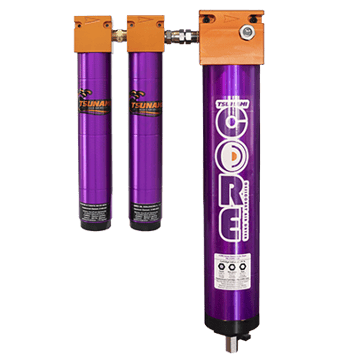
Some desiccant dryers may allow for externally regenerating the media through a process using high heat to “bake” the water vapor away, but this is not convenient. Therefore most users of this technology simply replace the desiccant cartridge when it becomes saturated. It's a great solution for immediate dry air with low up-front costs, and creates crisp, dry air needed for applications.
Membrane Dryers
This technology utilizes hollow fiber tubes which are commonly wound together and contained in a housing.
How it works: As wet air from the compressed air system passes through these hollow tubes, water vapor molecules are allowed to permeate through the tube walls, thereby drying the air going downstream. At the outlet end of the membrane dryer there is a large orifice which redirects a significant amount of the dry air to pass through the housing, around the hollow tubes where the water vapor is then ejected through the “sweep” holes at the other end of the dryer housing.
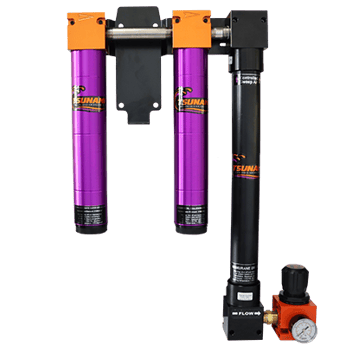
Membrane drying technology is very useful to have when you are required to have clean, dry air in an area where electrical power is not present or is not wanted for safety concerns.
the Best Air Dryer for Your CNC Machine Shop: What it Brings to the Table
Having the best air dryer for your CNC machine shop ensures the machining process runs smoothly. By carefully considering each type of dryer, it's possible to select one that perfectly meets your operation's specific needs. With the right dryer in place, your CNC machining projects will be successful and efficient.
Compressed air comes in handy for a number of situations, from keeping the workspace clear to actuating systems. The best air dryer for your shop will:
- Reduce contaminants -- A blast of dry air helps clear areas of debris, improves accuracy, and reduces tool damage. Otherwise, chips, dust, oil, dirt, and other contaminants interfere with the cutting tools and become embedded in the cutting surface.
- Improve actuating tool changes -- The compressed air flow controls the tool-changing process for rapid clamping, tightening, and release operations. This is managed by digital instructions already programmed into the system.
- Initialize robotic systems -- Air pressure powers robotic movements, which in turn assist with certain steps in the process, i.e. lifting, transporting, or placing products. Pneumatic systems replace both servo and electric motors.
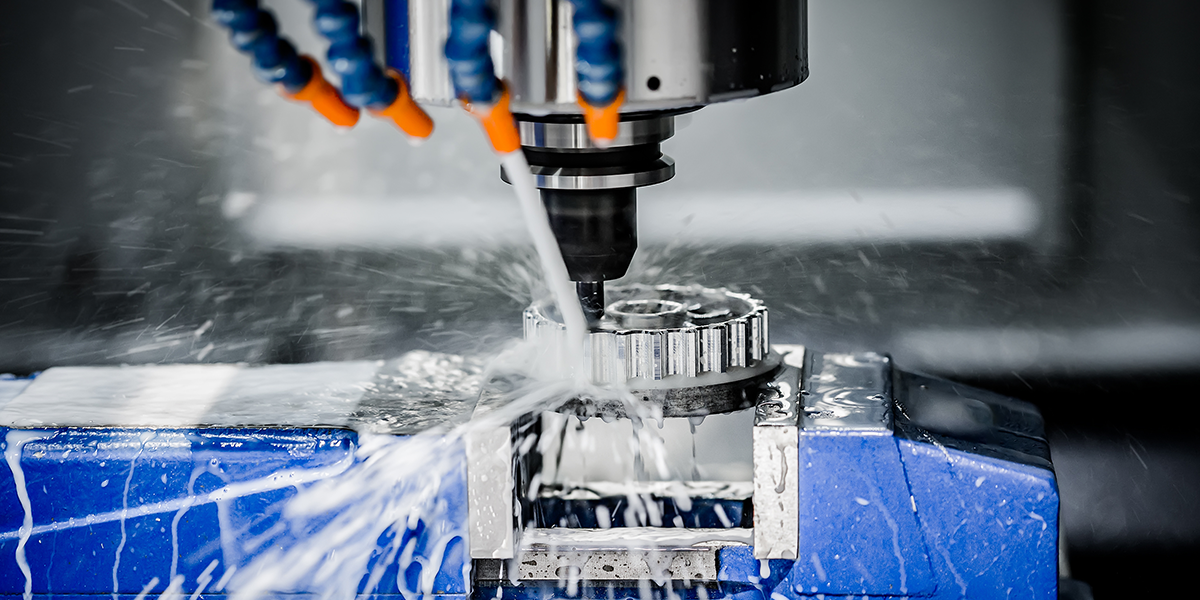
Compressed Air is the CNC Lifeline
Projects have deadlines, and CNC machine shops typically operate with little margin for error. In the event a compressed air system isn’t living up to expectations, downtime and rising overhead costs can result. Here are four common issues that contribute to downtime via a compressed air system:
Contamination
Compressed air is widely used as a power source for CNC machining tools, but this reliance can also lead to other issues. One of the biggest problems is contamination from dust and other particles in the air. Contamination occurs when dirt and other substances are sucked into the compressor, or when these particles are brought in from inside the shop.
Corrosion
Corrosion caused from water vapor and oil vapors coming into contact with the materials used in piping and filter manufacturing can have significant adverse effects. Over time, corrosion can build up and cause particles to flake off and migrate downstream, fouling up air orifices in cylinders, air motor complications, and spindle operation.
Sizing
Properly sizing your air dryer for the application or equipment is very important. Too large of an air dryer can lead to high energy consumption, causing a rise in overhead costs. Sizing too small has an even greater impact as they will typically “fall behind” allowing condensation and debris to migrate into your equipment which can then cause further wear outside normal parameters.
Pressure Loss
Pressure loss for certain CNC machining applications can mean the difference between success and failure. It is best to use an air dryer with a high-rated flow rate to minimize the pressure drop. A good-quality dryer will ensure consistent air pressure and steady operation.
By selecting the best air dryer for CNC machine shops, companies can realize improved quality, precision, and accuracy in their machining operations - all while keeping costs down.
Deciding on the Best Air Dryer for CNC Machine Shops
Dry air provides efficiency and assists in quality production. Choosing the perfect dryer for your CNC machine shop depends on the humidity in your area and the needs of your specific workshop. Remember, neglecting your compressed air dryer can mean severe consequences for your budget and your product timelines.
Run Ideas By a Seasoned Professional
The Tsunami team is available to discuss the layout of your workshop and highlight specific areas where compressed air pressure needs to be optimized. Reach out to your representative today.
